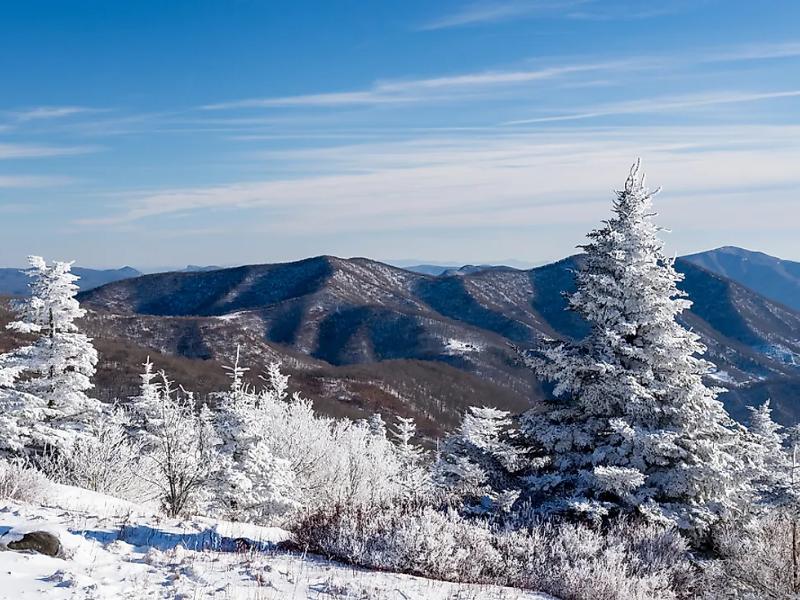Yes, it does snow in Nashville, Tennessee, but it is relatively infrequent compared to cities in more northern regions of the United States. Nashville experiences a temperate climate with distinct seasons, including mild winters. The city typically receives an average of around 5 to 7 inches of snow annually.
However, the actual amount of snow can vary significantly from one year to another, and some winters may see very little to no snow at all. Snowfall in Nashville often brings excitement and joy to both locals and visitors as it transforms the city’s iconic landmarks into picturesque winter scenes.
It is worth noting that since snow is not a regular occurrence, the city’s infrastructure and public services may be less equipped to handle snow compared to regions that frequently experience winter weather.
One common question that often arises among visitors and newcomers is whether it snows in Nashville. Let’s delve into the snowfall patterns and the city’s experience with winter weather.
Location Overview of Nashville
Nashville, often referred to as the Music City, is the capital and largest city of the state of Tennessee in the United States. It is located in the north-central part of the state, within the Nashville Basin, a geographically diverse region characterized by rolling hills and fertile valleys.
The city of Nashville lies in the southeastern region of the United States. The state of Kentucky borders it to the north, the state of Alabama to the south, the state of Georgia to the east, and the state of Mississippi to the west. The Cumberland River flows through the heart of the city, providing both scenic beauty and historical significance.
Nashville’s central location within Tennessee and its well-developed transportation infrastructure have contributed to its reputation as a major transportation hub. Several important interstate highways, including I-24, I-40, and I-65, converge in the Nashville metropolitan area, making it easily accessible from various parts of the country.
Nashville’s prime location, cultural significance, and musical heritage make it a captivating city with a unique blend of history, entertainment, and southern charm. From its bustling downtown to its picturesque neighborhoods, Nashville continues to attract people from all walks of life, making it a truly iconic and dynamic city in the United States.
Geography and Climate of Nashville
Nashville’s geographical location in the southeastern United States influences its snowfall patterns. Situated at a lower latitude with relatively low elevation and within the Nashville Basin, the city experiences milder winter temperatures.

Cold air masses from the north may not be as dominant, reducing the likelihood of sustained freezing temperatures necessary for significant snow accumulation. The proximity to the Gulf of Mexico also contributes to occasional mixed precipitation events, where warm, moist air meets cold air.
While Nashville does receive some snowfall during the winter months, it is relatively infrequent compared to northern regions, making the city more appealing to those who prefer a temperate climate with limited snow.
The city experiences a temperate climate with distinct seasons. While summers are hot and humid, winters bring about milder temperatures than northern states. The average high temperatures in December and January hover around the low 50s to upper 40s Fahrenheit. At night, temperatures can drop to the mid-30s Fahrenheit.
Historical Snowfall Record of Nashville
It is essential to note that snow events in Nashville are relatively infrequent and can vary significantly from year to year. The city typically receives around 5 to 7 inches of snow annually, but these notable snow events stand out in Nashville’s history as memorable and impactful winter weather occurrences.
Here are some notable snow events in Nashville’s history:
- January 16-17, 2003
Nashville experienced one of its most significant snowstorms when a winter storm brought 7.9 inches of snow to the city. This event caused widespread disruptions and made travel difficult.
- December 22, 2015
Nashville was hit by a surprise snowstorm that brought 2.5 inches of snow. This event led to traffic accidents and school closures, catching many residents off guard.
- January 22-23, 2016
Just a month after the December snowstorm, Nashville saw another winter storm that dropped 8.0 inches of snow. This event set a new record for the greatest snowfall in a 24-hour period in the city’s history.
- February 16-17, 2021
In an unusual occurrence, Nashville experienced a significant winter storm that brought 9.6 inches of snow. This storm impacted Nashville and a large portion of the Southern United States, leading to widespread power outages and other disruptions.
Winter Season & Snowfall Pattern of Nashville
Nashville does experience snowfall, but it is relatively infrequent compared to cities located in more northern regions of the United States. The city’s geographical location plays a significant role in its snowfall patterns. Nashville lies in the north-central part of Tennessee, which places it in the country’s southeastern region.

Nashville typically receives an average of around 5 to 7 inches of snow annually. However, these amounts can vary significantly from one year to another. Some winters may see very little to no snow, while others might experience more substantial snowfall events. It is common for winter to pass without significant snow accumulation in the city.
In recent years, Nashville has experienced varying levels of snowfall. Climate patterns and weather trends can lead to fluctuations in the amount of snow the city receives during the winter season. The local government and residents are accustomed to adapting to these changes and are generally well-prepared for occasional winter weather.
Locations to Enjoy Snow in Nashville
While Nashville doesn’t receive heavy snowfall like some northern cities, there are still a few places within and around the city where you can enjoy the snow during winter:
- Centennial Park
This popular park in Nashville offers open spaces and scenic landscapes, which can turn into a beautiful winter wonderland when covered in snow. The iconic Parthenon replica in the park adds to the picturesque setting.
- Radnor Lake State Park
Located just south of Nashville, Radnor Lake State Park provides a serene escape into nature. When it snows, the park’s hiking trails and lake become a peaceful and scenic spot for snowshoeing or light winter hiking.
- Warner Parks
Edwin and Percy Warner Parks offer extensive green spaces and hiking trails. During snowy days, the park transforms into a great location for sledding and enjoying family-friendly snow activities.
- Bicentennial Capitol Mall State Park
This downtown park features a beautiful open plaza and iconic landmarks. When snow falls, the park takes on a unique charm, creating opportunities for snowball fights and snowman building.
- Opryland Hotel and Resort
This expansive resort features beautifully landscaped gardens, waterfalls, and an indoor atrium. During winter, the resort is adorned with festive holiday decorations, making it a great place to escape the cold while still enjoying the winter ambiance.
- Cheekwood Estate & Gardens
In the winter months, Cheekwood Estate becomes a stunning display of holiday lights during their annual “Holiday Lights” event. The gardens and artistic light displays create a magical winter atmosphere.
- Local Farms
Some farms in the surrounding areas offer winter activities such as sleigh rides, snow tubing, and bonfires. Visiting one of these farms can provide a fun and unique snow experience in the Nashville area.
Factors Influencing Snowfall in Nashville
Several factors influence snowfall in Nashville, Tennessee. The city’s relatively low latitude and low elevation contribute to milder winter temperatures, reducing the likelihood of sustained freezing conditions needed for significant snow accumulation.
Additionally, Nashville’s geographical location within the Nashville Basin means that cold air masses may not be as well-trapped as in mountainous regions, further limiting the potential for heavy snowfall.
The proximity to the Gulf of Mexico can result in mixed precipitation events, where warm, moist air from the Gulf interacts with cold air, leading to rain instead of snow. While Nashville does experience occasional snowfall, these geographical factors make significant snowstorms less frequent.
Conclusion
While snow is not a regular occurrence in Nashville, Tennessee, the city does experience occasional winter snowfall. With an average annual snowfall of 5 to 7 inches, Nashville residents and visitors can enjoy the beauty of a winter wonderland from time to time.
Whether you are a snow enthusiast or someone who prefers milder winters, Nashville offers a diverse range of experiences and attractions to enjoy throughout the year.
